The RJ & DEIJ Corner: Meetups & Events Recaps (April to June 2024)
In this update, NAPD’s DEIJ Coordinator, Brittany Gail Thomas (BGT), Esq., recaps recent NAPD meetups and events related to racial justice and diversity, equity, inclusion, and justice.
APRIL 2024
Racial Justice Meetup: Public Defense, Racial Justice, & SWANA Communities
Meetup Speaker: Bahar Mirhosseni, Esq., Gender & Criminal Justice Fellow, Cornell Center on Death Penalty Worldwide (she/her/hers)
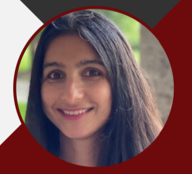
In a powerful examination of the impact of global racism on Southwest Asian and North African (SWANA) communities, meetup speaker, Bahar Mirhosseni, Esq., shifted the meetup atmosphere and infused information and knowledge for our betterment.
To start, Bahar discussed the connection between the US criminal legal system and the Israel-Palestine conflict, and how both have roots in racialized oppression. She further led the meetup through a two-part discussion.
In part 1, Bahar covered what the SWANA diaspora looked like in the US. She discussed the diversity of SWANA communities and mentioned areas of shared experiences, in terms of racial biases, racial privileges, harm from US foreign policies, and cultural similarities. She further shared examples of how SWANA attorneys, including herself, and clients face racism in and out of the public defense realm. Specifically, she reviewed Islamophobia, Muslim bans, and special registrations post-9/11. Bahar further explored the notion that broad racial biases against SWANA communities are often tied to US foreign policy, US immigration policies, and media headlines. She educated us on how anti-Palestinian racism and anti-SWANA biases and prejudices have seeped into the lens of potential jurors, prosecutors, judges, and other public defenders.
In part 2, Bahar discussed her experience with SWANA communities, public defense, and racial injustice in criminal legal systems globally. An international advocate and collaborator with legal advocates all over the world, Bahar shared her knowledge on racial injustice globally in criminal legal systems like Tunisia and Palestine. Through her presentation it was readily apparent that the impact of racial injustice knows no boundaries or borders. Bahar made us think and analyze how the interconnectedness of power and racism impacts us all.
Powerful is the only way to describe this April edition of the Racial Justice Meetup. Jeni Benavides, NAPD’s Executive Assistant & Conference Programs Liaison, agrees: “Bahar presented a powerful session and it was an honor to share the space. She provided such a thoughtful discussion of SWANA communities as well as the many threads woven between current events, racial justice and public defense.”
Thank you, Bahar, for sharing your knowledge, wisdom, and passion with us! We are honored!
DEIJ Meetup: Naming it, Working Through it, & Keeping Community: A Candid Conversation About DEI Work
Meetup Speaker: Christina Tavares, DEI Coordinator and Social Service Advocate, Defender Association of Philadelphia (she/her/hers)
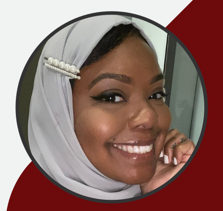
Next up for the June edition of the DEIJ meetup was Christina Traveras, DEI Coordinator and Social Service Advocate at the Defender Association of Philadelphia. Christina brought the reprieve that we all needed it from our series of presentations and did what she does best: community and action building.
In the meetup, entitled “Naming It, Working Through It, & Keeping Community: A Candid Conversation About DEI Work,” Christina started with the question, “What do we do now?” The answer being, “It’s our turn.” Christina shared her story of always being a DEI advocate – even as a little girl in West Philly – before she knew she was doing DEI work. Christina then invited meetup participants to introduce themselves, including what state they do DEI work in, and to speak freely about the attack on DEI and the mockery that it has become in the media – i.e., “DEI mayor” and other commentary.
After this discussion, Christina posed several discussion questions to meetup participants:
- Why DEI?
- Why did you choose to be the DEI leader?
- When was the lead DEI role or DEI committee established in your office?
- What are doing beyond the end time of the meetup? How are we keeping community and sharing resources?
- In the work, what are you struggling with?
From these questions, we learned that DEI leaders in public defense face constant DEI hostility. They hear the “DEI is dead” rhetoric; note the usage of Black men as the example when attacking DEI; experience second-guessing and undermining of their leader, especially if they are also Black or a person of color; and contend with performative DEI declarations without action. In their offices, DEI leads also reported experiencing lack of leadership buy-in, hiring and retention and issues, inactive DEI committees, and the ingrained public defender culture that pushes the ideology that public defenders can’t be racist.
Despite the complexities of their roles and all that the juggle, Christina still asked meetup participants to dig deep by answering:
- Where has self-care gone in the midst of being a DEI advocate?
- How do we support each other?
Christina was a breath of fresh air and created a safe space for vulnerability and collaboration at the meetup. We thank Christina for all that she contributes to NAPD and the DEIJ meetup space! We are lucky to have her.
MAY 2024
Racial Justice Meetup: Teach, Inspire, Mentor: A Seat at the Table for People of Color in Public Defense
Meetup Speaker: Latoya Hampton, LMSW, Trial Investigator, Federal Public Defender Office for the Middle District of Tennessee (she/her/hers)
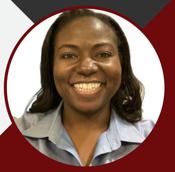
In May, the Racial Justice Meetup welcomed Latoya Hampton, LMSW. Latoya is a seasoned social worker and investigator in the federal public defense system. With a passion for mentorship and a belief that on the shoulders of greatness we all stand, Latoya gave us a seat at her table and empowered us along the way.
To start, participants had an opportunity to discuss the importance of recruiting, retaining, and mentoring people of color in public defense spaces. But Latoya’s presentation wasn’t just about surface level effort to include people of color, it also highlighted the importance of having people of color in the spaces not only for the clients but for the greater public defense community. Latoya walked us through data that showed that over 77% of all Black persons who are accused of a crime will be represented by a public defender. To that end, Latoya shared that over 75% of all public defenders are white. With that, Latoya asked, “Where are the people of color in public defense?”
Latoya asked participants to reflect upon and share how they got into public defense. After participants shared, it became abundantly clear that most people of color in public defense did not have a mentor or example of a public defender or defense professional. With that, we learned from each other that most people of color in public defense spaces feel isolated, unsupported, have not received opportunities to be mentored, and feel like a unicorn in their offices.
With that, Latoya went on to share a video of a common experience people of color face in public defense spaces: discrimination at the courthouse. Participants brought the fire by sharing the discriminatory and racially provoked incidents they’ve personally experienced as public defense professionals. From jumping through extra hoops just to go in the court building, to being blocked from approaching the bench despite being a bar attorney in the courtroom, the meetup participants spoke truth to power. This further led the meetup to collectively agree that there is a need for continuous discussions around how to properly support public defense professionals of color to ensure that they are actually a part of the greater public defense community.
In reflection, Latoya notes that “Racial Justice Meetups are a fantastic way to meet and learn from our colleagues in the field who are seeking answers to some of our most difficult questions surrounding race, racism, and cultural inclusion in the criminal legal field. I would encourage EVERYONE to share with their offices the enriching benefits that NAPD has to offer!”
We thank Latoya for leading this very important topic and creating an open space for participants to fully engage! We can’t wait to hear from Latoya again during her plenary session at the Racial Justice Conference 2024! #MeetUsUnMontgormery
DEIJ Meetup: An Exploration of AANHPI Month, DEI, & Public Defense
Meetup Speaker: Arlene Anderson, Trainer, Office of the Public Defender, Maricopa County, Arizona (she/her/hers)
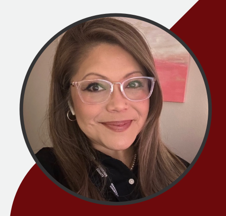
In honor of Asian American and Native Hawaiian/Pacific Islander (AANHPI) Month, the May edition of the DEIJ Meetup had the pleasure of hearing from Arlene Anderson, an experienced and dedicated trainer with the Office of the Public Defender in Maricopa County, Arizona.
Through her detailed and thoughtful PowerPoint presentation, Arlene shared the history of AANHPI advocacy, including attacking the “perpetual foreigner” stereotypes and discussing contributions by AANHPI people in all facets of life, including scientific inventions, civil rights, law, and more. She also reviewed the history of anti-Asian racism and how COVID perpetuates that racism, thus leading to hate crimes and further deepening the impact on racism on AANHPI communities. Arlene also shed light on the “model minority” myth and its impact on mental health, education, career, home life.
Arlene further connected how all of this impacts DEI work and “whitelash.” In a section called “Revealing the Other,” Arlene discussed othering of AANHPI amongst people of color and other of the various subsects of AANHPI. She highlighted how that othering leads to lack of statistics when it comes to the criminal legal system. This further puts a light on how the lack of statistical information can hurt our ability to properly represent and support our AANHPI clients.
Lastly, Arlene shared her origin story and experience with racism and othering. Through this vulnerable moment, Arlene illustrated how her experiences have made her who she is today: a passionate, kind, and caring public defense leader.
After the meetup, Arlene noted, “I appreciate the privilege of sharing on what it means to be Asian-American as well as expound on some history and criminal justice data. What a wonderful community we have that we learn, and share, and grow with each other. We have so many resources in the people in our group. Thank you all for being part of our meetup!!!”
Thank YOU, Arlene! This meetup presentation was just what we needed to honor the work and contributions of the AANHPI community. It also gave us space to take stock in who we are as leaders and inspired us to do and be more. This is a must see presentation that we will have presented again!
JUNE 2024
Racial Justice Meetup: Public Defense Practice with LGBTQIA+ Clients
Meetup Speaker: Brittney Williams, LMSW-C, Supervisor, Advocacy, Intervention, and Mitigation (AIM) Division, Wasthenaw County Public Defender’s Office (she/her/hers)
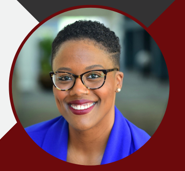
For the month of June, we had to have a meetup focused on LGBTQIA+ Month! To lead us, we had social worker and racial justice advocate, Brittney Williams, LMSW-C.
With a roadmap, Brittney took us through multiple learning objectives to ensure that we were educated on the impact of our public defense practice on LGBTQIA+ clients. First, Brittney discussed how language matters and is constantly evolving. She further dove into the 4 areas to think about when it comes to LGBTQIA+ people: (1) Gender Identity, (2) Gender Expression, (3) Sex Assigned at Birth, & (4) Attractionality. During this section, she reminded us that our LGBTQIA+ clients (and colleagues, too) do not owe us a specific presentation of self. She stressed that is also important not to other our LGBTQIA+ clients because they do not adhere to certain norms. Simply put, call people what they want to be called.
Next, Brittney focused on intersectionality, discussing its origins and providing a case law example. Brittney then turned our attention to LGBTQIA+ people of color in the criminal legal system. She highlighted the rise in LGBTQIA+ youth of color, disparities with Indigenous LGBTQIA+ youth, the role of socio-economics, the impact of incarceration spaces on trans clients, and more. She reviewed the history of criminalization of LGBTQIA+ people and charges that disproportionately impact LGBTQIA+ folk. Brittney charged us to reject the idea of “cultural competence” and embrace “cultural responsiveness” to ensure that real change is made and true support is given to LGBTQIA+ clients.
Brittney also attacked the ever-present issue of microaggressions. Using an example of a trans client that experienced microaggressions from court personnel, Brittney illustrated how microaggressions can easily impact our LGBTQIA+ clients. When it comes to microaggressions, Brittney encouraged us to focus on impact, not intent, and suggested that a culture of intentionality be made in our offices to ensure that these discussions don’t happen just once. With this, Brittney also reminded us to be mindful of the impact on our LGBTQIA+ colleagues who also experience microaggressions in court and in our offices.
Lastly, Brittney discussed the levels of attitudes towards LGBTQIA+ people, shared a video regarding transgender inclusion and transitioning at work, and further provided an organizational assessment tool and other resources.
Brittney’s presentation was packed with power and even more inclusive information. As to her meetup experience, Brittney says “I enjoyed being able to present to the RJ+ Committee about working with LGBTQ-identified folks. We don’t talk nearly enough about the intersection of race and LGBTQ identity, so I’m grateful that space was made for a discussion.” We enjoyed it too, Brittney. Thank you. See you at the Racial Justice Conference 2024!
DEIJ Meetup: An Open Discussion About Identity, Culture, and the Law
Meetup Speaker: Amari Harris, Esq., Equity, Diversity, and Inclusion Attorney, Virginia Indigent Defense Commission
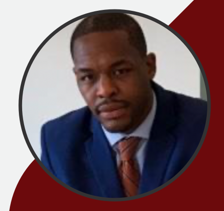
The June edition of the DEIJ Meetup was led by experienced public defender turned DEI expert, Amari Harris, Esq. Amari utilized his personal and professional story to lead us through a presentation on identity, culture, and law.
Amari started the meetup with a discussion about visual identity and conducted a word association exercise to illustrate implicit bias. He then shared his origin story and the impact of racism on his development of his identity as a black man, including experiences with gaslighting, being told he “talked white,” operating in survival mode in law school, feeling like the work being done was just throwing pebbles at a castle, experiencing police violence, and shaping his views on government oppression. After sharing, Amari asked participants, “How would you describe yourself outside of the box that others put you in?”
Amari then shifted to his law school experience and detailed his experiences of blatant racism exhibited by classmates and professors, the inherited racism of the bar exam, and discovering why he actually went to law school and what his purpose was. He then invited former law school attendees to share their law school experiences, which transitioned into a deeper discussion about how law school classmates become lawyers and end up exhibiting the same racism and cultural insensitivity in public defense offices and with clients.
Amari then discussed the start of his legal career as a public defender and how his initial impression of public defenders was a negative one. But one public defender changed his whole mindset and inspired him to do this work. While in the work, Amari discovered the problematic nature of white-dominated leadership and attorneys of color hijacking the client narrative. He further advised that the focus should be on talking less, listening more, translating for clients, and finding common ground.
Lastly Amari tackled the challenges that come along with DEI work. He declared that diversity IS ability. He shared how he got into DEI work and, in that role, fights against the diversity hire, “diversity over ability” myth, the “POCs aren’t applying” lie, and rewriting job descriptions that cause internal imposter syndrome for people of color. He made it clear that policy changes need to happen to ensure that public defense politics do not triumph over capable leadership. He further asserted that systematic changes need to happen to make real DEI changes in public defense offices. As Amari put it, “It’s easy to put DEI in a corner” but acknowledged that DEI work is hard, and stressed that you have to do the work. He emphasized that DEI work and support must be done from the top down. Amari inquired, “Are you contributing to systematic changes to support DEI and belonging?” Ultimately, each of us must contribute to the success of DEI and belonging in our offices and the greater public defense community.
“As usual it’s great to be in an affirming space in a less than affirming world,” Amari said. “The DEIJ meetup is a home for those committed to the struggle within the struggle and I am glad that I have found my people.” That says it all, Amari. We appreciate your contributions to this community and all you did to make it a safe space to operate authentically.
All speakers presented and spoke from their own expertise and experiences. Their personal opinions and perspectives are not representative of the organization(s) they work for and/or with.
Interested in being on the Racial Justice and/or DEIJ listserv? Want to connect with us at the Racial Justice and/or DEIJ meetups? Email BGT at brittanygt@publicdefenders.us to sign-up and for more information.
Save the Date: NAPD’s Racial Justice Conference is in Montgomery, Alabama, on October 28-31, 2024. Registration is open. REGISTER TODAY!

